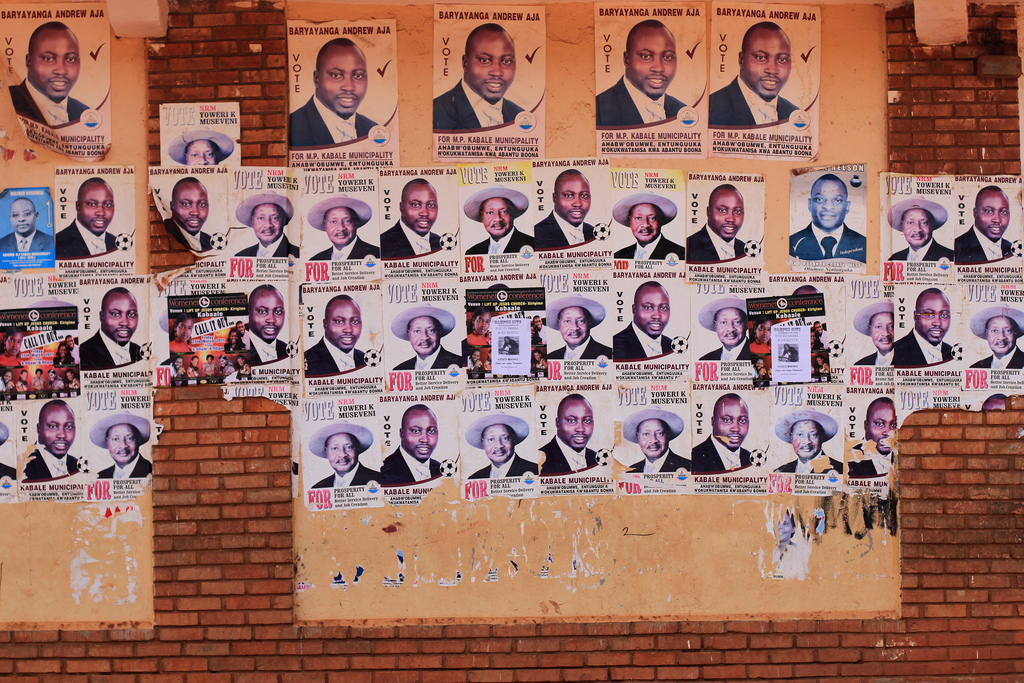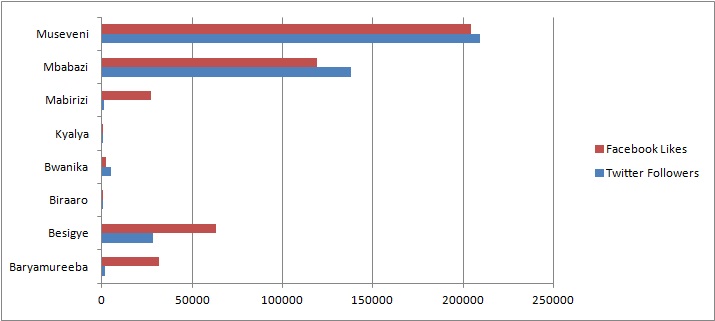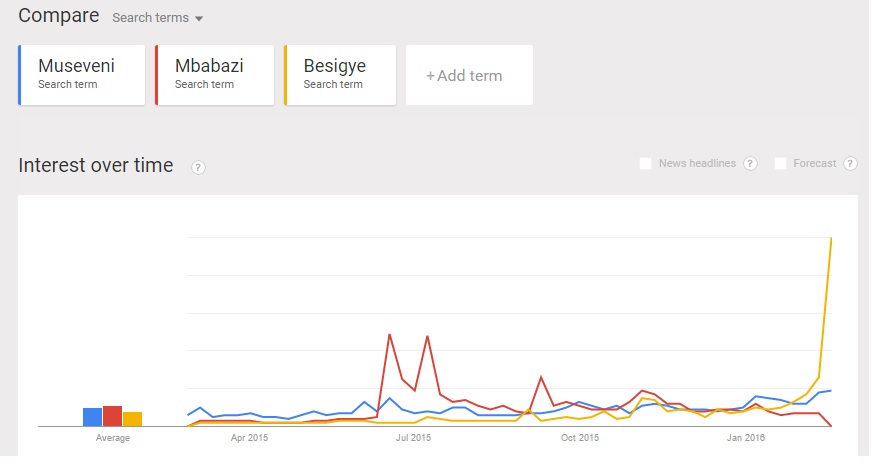
Uganda’s presidential election is playing out interestingly on social media. with social media taking on a bigger role than in previous elections. Uganda’s Communication Commission estimates that the country has 19 million mobile phone subscriptions, and 11.7 million internet users out of a population of 37 million.
94% of Ugandans who have a mobile internet connection use it to access social media at least once a day, and so the medium offers candidates at all levels a with a platform to engage the electorate one-on-one, responding to questions and sharing the progress of their campaigns.
These statistics do not include dark social and networks such as WhatsApp enabling Ugandans to communicate and discuss the politics of the country either one-on-one or in groups.
The candidates have varying numbers of followers on social media. Incumbent Yoweri Museveni has 209,000 followers on Twitter, and 204,000 likes on his official Facebook page. Amama Mbabazi is second with 138,000 followers on Twitter and 119,000 likes on Facebook. In third place is Kizza Besigye, with 63,395 likes on Facebook, and 28,200 followers on Twitter.

On Google Trends, the three leading candidates for president have had occasional spikes in popularity. Perhaps the most dramatic of these heading into the election period is Kizza Besigye, who was arrested three days before the election day.
 A sentiment analysis of 96223 tweets collected from the
A sentiment analysis of 96223 tweets collected from the #UGDebate and #UgandaDecides hashtags reveals that Yoweri Museveni is the most tweeted-about of all the eight candidates, with 11,870 (12%) of the tweets mentioning him. This could be due to the fact that he agreed to attend the second Presidential Debate, having skipped the first one.
Kizza Besigye got the second highest number of mentions, with 11,105, representing 11.5% of the total tweets surveyed.
In a surprising third place was John Mabirizi, who appears to be the comedy candidate this time around. He received 8230 mentions, 8% of the total. He showed up late for the second debate, and his answers were generally off the cuff.
Amama Mbabazi, the other main challenger for the presidency, polled sixth with 2883 mentions, behind Maureen Kyalya, the only female candidate for president who was mentioned 4675 times, and Abed Bwanika, who got 2960 mentions.
Of the 44,355 tweets directly mentioning a candidate, Museveni was mentioned in 26.7%, Besigye in 25%, Mabirizi in and Mbabazi in 6.4%.
The sentiment analysis is hardly representative of Uganda’s electorate, but it offers an interesting insight into how the candidates stack up against each other in popular opinion.
Social media provides an interesting insight into how the people perceive their candidates, and it gives the candidates a chance to interact with the electorate. Their popularity on social media may be an indication of how popular they are on the ground, though this popularity could fade dramatically at the ballot box.









